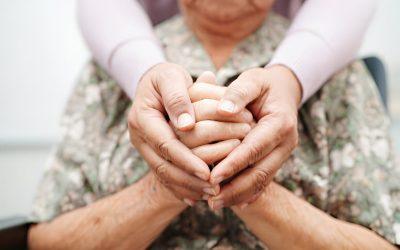When Dreams Are Put on Hold
Infertility affects about 1 in 8 couples globally, making it a widespread yet profoundly personal struggle. As each month passes, the emotional weight can grow heavier—testing self-worth, relationships, and the vision of what the future might hold. This guide explores how compassion—both inwardly and from those around us—can transform the journey of infertility from an isolating experience into one enriched by understanding, empathy, and hope.
“Before I realized I needed to be kind to myself, I saw infertility as my own failure. Compassion changed everything—especially how I view my body.”
When Compassion Guides Infertility

A Journey Both Widespread and Deeply Personal
Infertility affects about 1 in 8 couples globally, making it a widespread yet deeply personal and often isolating struggle. This journey touches not only on physical health but also on emotional well-being, relationships, and identity. Navigating infertility requires a foundation of compassion—both self-directed and from those around us. Compassion can transform the path, offering a sense of hope, understanding, and connection in what can otherwise feel like an isolating experience.
A Journey Both Widespread and Deeply Personal
Infertility affects about 1 in 8 couples globally, making it a widespread yet deeply personal and often isolating struggle. This journey touches not only on physical health but also on emotional well-being, relationships, and identity. Navigating infertility requires a foundation of compassion—both self-directed and from those around us. Compassion can transform the path, offering a sense of hope, understanding, and connection in what can otherwise feel like an isolating experience.
When someone you care about faces health challenges, the emotional weight can be as heavy for you as it is for them. The role you play becomes one of quiet resilience, steady support, and often, unseen sacrifices. According to a study highlighted on a leading healthcare platform, emotional and practical support from loved ones can significantly influence a person’s recovery and overall well-being. Yet, the path of support is far from linear—it demands empathy, patience, and an evolving understanding of their needs as well as your own.
The Emotional Toll of Infertility
The Personal Impact
The diagnosis of infertility often feels like a betrayal by one’s own body. For many, the dream of parenthood is deeply embedded in life’s narrative, making infertility a challenge to self-identity and future aspirations. Feelings of grief, anger, and self-blame are common, with studies showing increased rates of anxiety and depression among those struggling to conceive.
Grieving Invisible Losses
Infertility is a series of cyclical losses: the loss of expectations, imagined futures, and sometimes the joy in the process of trying. These losses, though intangible, are profound and deserve acknowledgment.
The Role of Medical Compassion
Clear and Empathetic Communication
Navigating fertility treatments like IVF or hormone therapies can be overwhelming. Compassionate healthcare providers play a vital role by offering clear explanations, respecting the emotional weight of decisions, and acknowledging the physical and psychological toll of treatments.
Holistic Support
Healthcare should address not just the physical condition but also the emotional impact. This could mean connecting patients to counseling services, providing resources for stress management, or simply showing empathy during appointments.
Compassion Starts with the Self
Reframing Self-Blame
Infertility is a medical condition, not a personal failing. However, many blame themselves, scrutinizing every past choice or health decision. Self-compassion involves releasing this blame and understanding that infertility is not within one’s control.
Tools for Emotional Resilience
Practices such as mindfulness, journaling, or therapy can provide emotional tools to navigate the ups and downs of treatment. Joining support groups—whether online or in person—can also foster a sense of belonging and validation.
Relationships and Infertility
The Role of Partners
Infertility impacts both partners in a relationship, though they may process and grieve differently. Compassion within partnerships involves patience, open communication, and shared emotional labor. It’s important to create a safe space where each person can express their feelings without fear of judgment or dismissal.
Support from Family and Friends
Family and friends can be powerful allies by offering practical help, such as accompanying someone to appointments or providing a listening ear. Educating themselves about infertility can also prevent hurtful comments like, “Just relax, and it’ll happen,” and instead foster truly supportive conversations.
“Compassion isn’t about having the answers—it’s about never letting someone’s pain go unseen.” — Elisa M.
Breaking the Silence in Society
Addressing Stigma
Infertility remains shrouded in stigma, often seen as a private issue rather than a public health concern. This societal silence leaves many feeling isolated, as though their struggles are shameful or unworthy of discussion.
Advocating for Awareness
Breaking this stigma requires education, advocacy for better access to fertility treatments, and creating spaces where reproductive challenges can be discussed openly. Normalizing these conversations can empower those affected to seek support without fear of judgment.
Building a Supportive Community
The Power of Shared Stories
Hearing others’ experiences can be transformative. Online forums, local workshops, and support groups offer more than advice—they provide connection, validation, and hope. Knowing that others have walked a similar path reduces feelings of isolation.
Fostering Resilience Through Community
Shared communities also inspire resilience, as people share strategies for coping, celebrate small victories, and remind one another that there is no “right” way to navigate infertility.
Things To Try This Week!
- Self-Compassion Check: Each morning, take a moment to affirm that your infertility journey does not define your worth. Jot down one personal strength you appreciate about yourself.
- Educate and Advocate: Read an article or watch a video about fertility treatments or emotional coping strategies. Share a snippet of knowledge with a friend or partner—spreading awareness reduces stigma.
- Community Outreach: If you feel isolated, search for a local or online infertility support group. Even brief interactions can remind you that you aren’t alone on this path.
Conclusion
Navigating infertility with compassion means embracing the multifaceted challenges of this journey—emotional, physical, relational, and societal. It’s about creating spaces where grief and hope coexist and where individuals feel seen, supported, and understood. Compassion allows us to honor each person’s unique path, whether it leads to parenthood or a reimagined future. In this way, we transform infertility from a lonely struggle into a shared human experience, one rooted in empathy and unwavering courage.
Infertility can cast a long shadow, but in its quiet spaces, there’s room for renewed understanding, solidarity, and gentle self-care.
Our All Things Cherish collection offers thoughtful tokens, reflective prompts, and caring resources designed to honor your emotional journey. Allow yourself the grace to grieve lost expectations, while cherishing the resilience, empathy, and hope that continue to grow within you.
Cradling Hope: Embracing Compassion Through Infertility
Infertility’s challenges can feel overwhelming, but compassion can pave the way to deeper connection—with yourself and those who share your path. Our All Things Cherish collection offers heartfelt items and uplifting insights that nurture your spirit when life’s most delicate dreams seem just out of reach. Join us in cherishing strength, tenderness, and the promise that hope endures.
More Reflections, More Growth
Loss is complex, and the road to healing is different for everyone. These reflections offer insight, support, and guidance as you navigate this journey.
Relearning Life: Healing After Losing a Spouse
Healing after losing a spouse is a deeply personal journey. This guide offers compassionate strategies for navigating grief, honoring their memory, and rediscovering yourself.
The Unspoken Heartache: Understanding the Quiet Grief of Miscarriage
Miscarriage is a silent grief that touches one in four pregnancies, yet it remains unspoken for many. Explore the layers of loss, the cultural silence, and ways to support healing through acknowledgment and empathy.
When Hope Falls Silent: Finding Support After Pregnancy Loss
Pregnancy loss is a deeply personal experience, often shrouded in silence. Learn how to find support—from medical care to community connections—and navigate the complex grief with compassion and hope.
Where Grief Finds No Words: Honoring Unspoken Losses
Unspoken losses—miscarriage, estrangement, unrealized dreams—often remain hidden, leaving those affected isolated in their grief. Learn how to honor these silent struggles, validate their impact, and embrace healing.
Grieving Financial Loss and Finding Stability: Rebuilding Hope and Confidence
Financial loss affects more than your finances—it shakes your sense of identity and security. This guide explores how to process the grief, take practical recovery steps, and find emotional resilience during challenging times.
The Emotional Toll of Separation
Separation is more than a life change—it’s an emotional journey filled with grief, self-discovery, and transformation. Learn strategies to navigate this difficult transition and build a hopeful new chapter.
Finding Your Next Chapter: Rediscovering Yourself After a Life Change
Life changes can redefine who you are, challenging your sense of identity and direction. Discover how to navigate transitions, embrace growth, and rediscover your true self with intention and resilience.
Standing Beside Their Struggle: Supporting a Loved One Through Health Challenges
Supporting a loved one through health challenges is an act of love and resilience. Discover practical strategies and emotional tools to offer meaningful care while protecting your well-being.
Finding Hope After Losing a Child
Finding hope after the loss of a child is a delicate journey. This guide offers compassionate steps to honor their memory and navigate grief toward moments of light.
Explore Journeys of Healing and Solace:
Discover dedicated spaces that offer understanding, guidance, and connection through grief. From the loss of loved ones to life’s challenging transitions, each category provides a pathway to reflect, connect, and find peace in shared experiences.


























